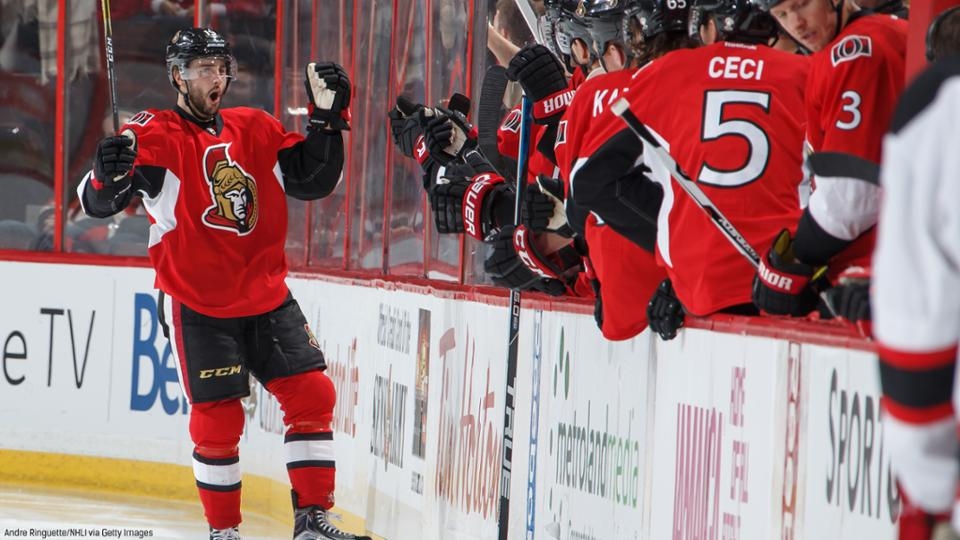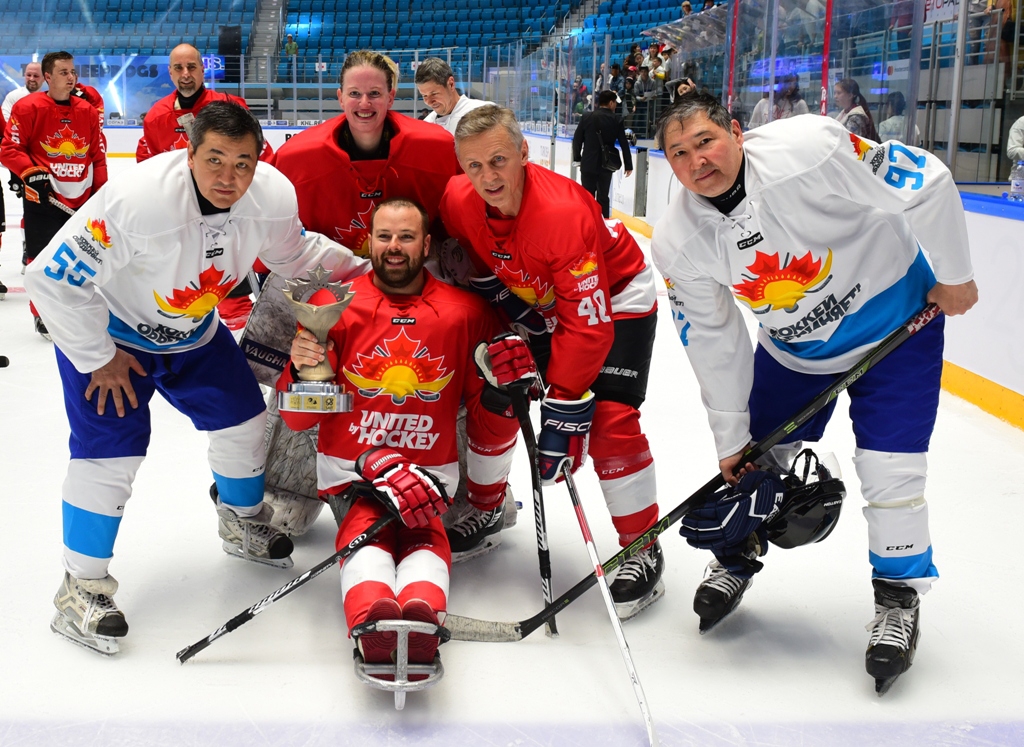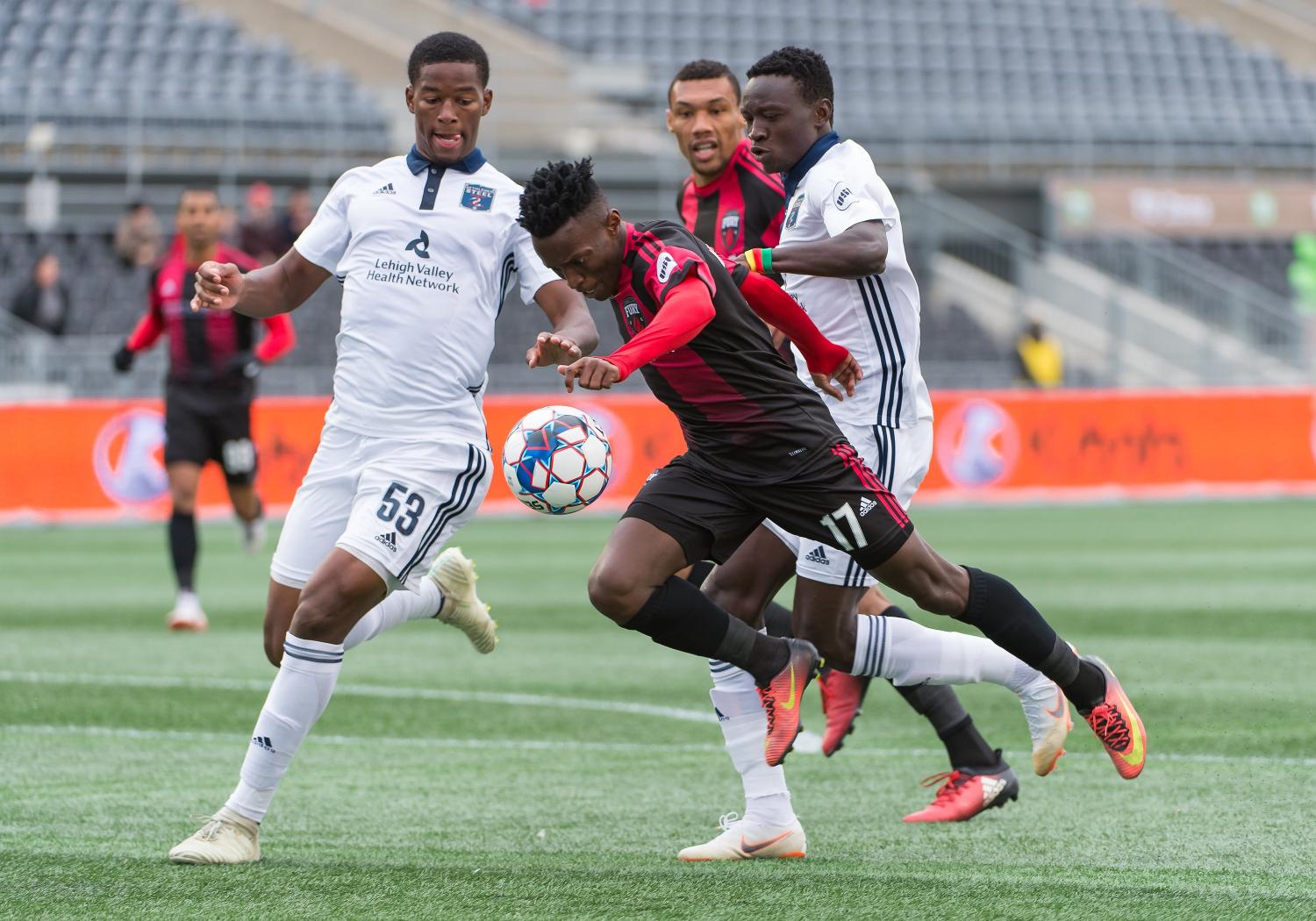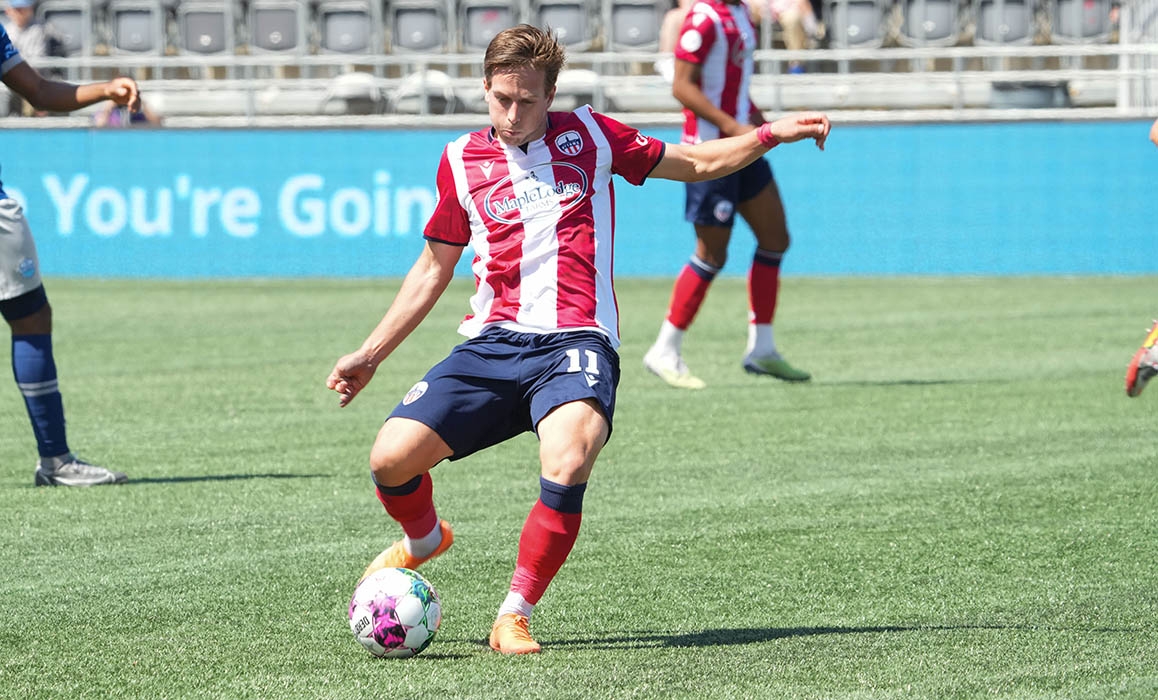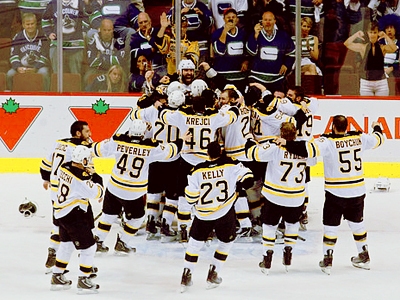
Team Game: Learning from the Champs
The Vancouver Canucks entered this year’s Stanley Cup playoffs as prohibitive favourites, posting the NHL’s best regular-season record and boasting the league’s most prolific offense. The 2010-11 Miami Heat were the talk of the NBA, pairing two established stars in LeBron James and Chris Bosh with resident superstar Dwyane Wade in free agency, sweeping through the Eastern Conference en route to the playoffs. The United States’ women’s soccer team dominated the headlines at last month’s World Cup, captivating a dormant American fan base and rolling into the championship game with the utmost confidence.
What do the Canucks, Heat and American national team all have in common besides the fanfare surrounding them as they entered their respective finals? They all lost.
To many sports pundits, the chemistry of Daniel and Henrik Sedin (the NHL’s two most recent scoring champions) and the antagonism of Frank Selke Trophy winner Ryan Kesler would be enough to overmatch the Boston Bruins, while the heralded trio of James, Wade and Bosh would surely outshine the no-name Dallas Mavericks. Similarly, after outlasting the host Germans and the favoured Brazilians, the United States women’s team was considered a lock to top Japan in the World Cup final.
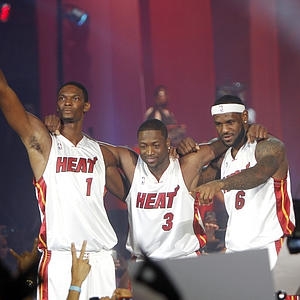
Despite their star-power, each team came up short, and the reasons why can be found in the trait shared by their opponents: Aside from one or two big names, the Bruins, Mavericks and Japanese were defined by a seemingly inexhaustible reserve of depth, with several players capable of seizing the moment and making a key play for their team.
The Bruins were powered by a terrifically balanced offensive attack, with no player scoring more than 62 regular-season points (with eight tallying at least 41). Boston’s David Krejci, a 24-year old centre rapidly staking his claim as the game’s most underrated player, outpointed the Sedins to lead the playoffs in scoring, while Patrice Bergeron, Milan Lucic, Nathan Horton, Brad Marchand, Michael Ryder, Tyler Seguin, Rich Peverley and former Senator Chris Kelly all chipped in with timely bursts of offense.
Aside from their towering captain and Norris Trophy nominee Zdeno Chara, Boston’s defense was relatively inconspicuous, featuring steady German Dennis Seidenberg and a slew of other reliable veterans. The strength of their defense was goaltender Tim Thomas, who posted an unfathomable 2.00 GAA and a .938 SV% during the regular season, then somehow bettered his marks during the playoffs (1.98 and .940). Thomas would cap off the greatest individual goaltending season of all time by absolutely stonewalling the Canucks, allowing just eight goals in seven games, including a 37-save shutout to clinch the Cup.
(Tangent: my favourite moment of the Cup finals came just as the clock struck zero in Game 7, when a Vancouver player took one last meaningless shot down the ice at Thomas. As the camera panned to the first delirious Bruins surrounding the net, Thomas bent down and stopped the puck, cementing his shutout, asserting that no Canucks shooter would beat him, not even after the buzzer. Only then did he join in on the celebration.)
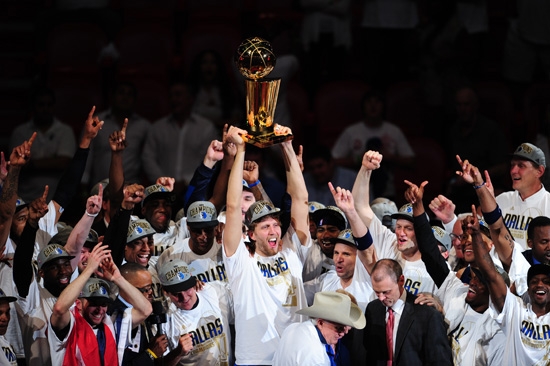
Thomas’ impact was duplicated in the NBA playoffs by Mavericks forward Dirk Nowitzki, a seven-foot German with a plethora of offensive weapons unmatched by any man of his height in league history. After dropping the 2006 Finals to Miami and disappointing in the playoffs numerous other times, there was little reason to believe that 2011 would finally be Dallas’ year: nine of their regulars were 29 years or older, while the Heat’s celebrated trio had dominated the top-heavy Eastern Conference in their first year together.
Still, the Mavericks triumphed in resounding fashion by sticking to their strengths: their crafty use of a zone defense eliminated driving lanes for Wade and James (the latter of whom was embarrassingly passive in defeat), while their unselfish ball movement and deadeye three-point shooting torched an accomplished Miami defense with a propensity to over-rotate.
Above all, the Mavericks won because of their veteran resilience, coming back from double-digit deficits several times in the postseason, most notably after the Heat celebrated prematurely in Game 2 of the Finals. Dirk, the catalyst for each Dallas comeback, was complemented by a time-tested cast of teammates, including Jason Kidd, Jason Terry, Tyson Chandler, Shawn Marion and JJ Barea, who each bought into coach Rick Carlisle’s team-first philosophy and exposed Miami’s lack of depth beyond the so-called Big Three.
The unlikeliest champion of the last two months has to be the Japanese women’s soccer team, who had reached the knockout stage just once in five previous World Cups, and only qualified for the 2011 tournament by placing 3rd in Asia during qualification. Nevertheless, they scraped their way through the round robin, winning twice and falling 2-0 to England, before stunning the host Germans in the quarterfinals on a goal in extra time. From there, they would top undefeated Sweden 3-1 in the semifinals, earning a match-up with the vaunted American squad.
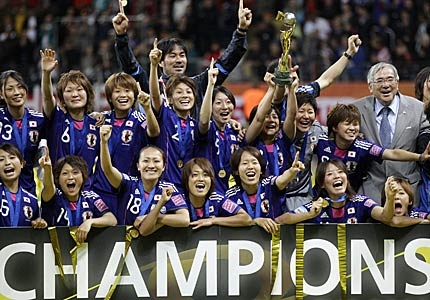
One advantage the Americans had over the Japanese was the decided height discrepancy – no Japanese player stood taller than 5’6, while 5’11 American striker Abby Wambach roamed the penalty area searching for airborne crosses and 5’9 goalkeeper (and US media darling) Hope Solo guarded the net with a brash cockiness. Japan kept the ball on the ground with pinpoint passing, however, and tied the game at 2 in extra time with a brilliant volley from captain Homare Sawa, a veteran of 173 national team appearances and five World Cups. The star-studded Americans faltered in the penalty shootout, missing three of four shots as Japan converted three of four to win the World Cup.
All these results are, of course, predicated on more than just the capability of the winning team. Each championship could have easily shifted in the other direction: Vancouver came within one game of the Stanley Cup, and could have won if Tim Thomas had anything less than the greatest series of his life; Miami could have topped the Mavericks if they had buckled down and refused to let Dirk take over Game 2; the American women were an agonizing five minutes from reclaiming the World Cup, and would have if a defender could have disrupted Homare Sawa’s path to the ball.
And yet, those things didn’t happen, and the prevailing pattern of this year’s champions is as such: Take one veteran leader with superlative abilities and even greater mental courage, and match them with teammates capable of stepping up and supporting their leader in the biggest of moments. The Sedins, James and Wade and Wambach and Solo may all yet be crowned champions, but 2011 has clearly marked itself as the year of the team.

